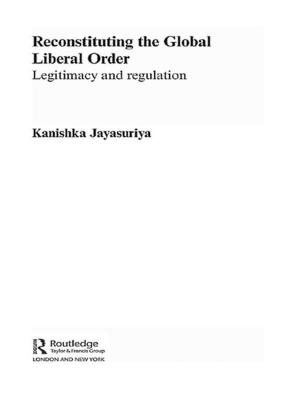André Green Revisited
Representation and the Work of the Negative
Nonfiction, Health & Well Being, Psychology, Psychoanalysis| Author: | ISBN: | 9780429811340 | |
| Publisher: | Taylor and Francis | Publication: | August 6, 2018 |
| Imprint: | Routledge | Language: | English |
| Author: | |
| ISBN: | 9780429811340 |
| Publisher: | Taylor and Francis |
| Publication: | August 6, 2018 |
| Imprint: | Routledge |
| Language: | English |
André Green was a leading voice in French psychoanalysis, a brilliant thinker and an innovative contributor to our field. His writings sit at the crossroads of contemporary psychoanalysis, where the challenges posed and the opportunities presented by the work of Lacan, Klein, Winnicott and Bion meet the still generative insights of Freud, many of which Green reminded us have yet to be fully developed or appreciated. Green’s expansion of Freud’s theory of psychic representation and his own formulation of the work of the negative exemplify his idea of clinical thinking and herald what many believe is a new paradigm for psychoanalysis.
This volume of essays, written by an international group of scholars in response to and appreciation of Green’s contributions, continues to explore the tension between presence and absence, loss and remainder, fort and da and the creative, dialectical arc that exists between these pairs in psychic development and the analytic process. It aims to expand the reach of our theory and practice to patients whose difficulties lie at the limits of analyzability, beyond the spectrum of neurotic disturbances for which classical psychoanalysis was originally intended, and to place the reader at the frontiers of contemporary clinical thinking and analytic technique.
André Green was a leading voice in French psychoanalysis, a brilliant thinker and an innovative contributor to our field. His writings sit at the crossroads of contemporary psychoanalysis, where the challenges posed and the opportunities presented by the work of Lacan, Klein, Winnicott and Bion meet the still generative insights of Freud, many of which Green reminded us have yet to be fully developed or appreciated. Green’s expansion of Freud’s theory of psychic representation and his own formulation of the work of the negative exemplify his idea of clinical thinking and herald what many believe is a new paradigm for psychoanalysis.
This volume of essays, written by an international group of scholars in response to and appreciation of Green’s contributions, continues to explore the tension between presence and absence, loss and remainder, fort and da and the creative, dialectical arc that exists between these pairs in psychic development and the analytic process. It aims to expand the reach of our theory and practice to patients whose difficulties lie at the limits of analyzability, beyond the spectrum of neurotic disturbances for which classical psychoanalysis was originally intended, and to place the reader at the frontiers of contemporary clinical thinking and analytic technique.















